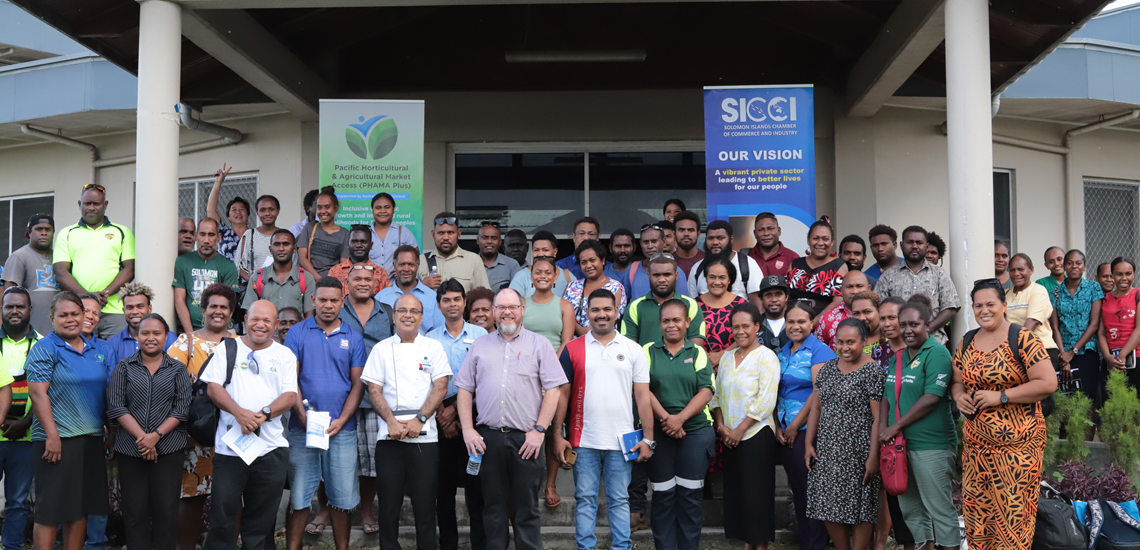
Tuesday 22nd August, Honiara - In an ongoing effort to strengthen food safety in Solomon Islands, local food handlers turned up in numbers for a food handling safety workshop at Solomon Islands National University (SINU) last Thursday.
The workshop was facilitated by leading Australian food science institution, HACCP Australia with support from the Pacific Horticultural and Agricultural Market Access Plus (PHAMA Plus) in partnership with Solomon Islands Chamber of Commerce and Industry (SICCI).
Participants included hotel operators, vendors, food exporters and representatives from government ministries, most of whom are SICCI members. Twenty tourism students and staff of SINU were also part of the workshop.
Event Facilitator Mr. David Haberfield of HACCP Australia said understanding hazards in food production is paramount as it determines the quality and process in which a product is produced.
He told those present that chemical and physical hazards are two major concerns and are critical to understand when comes to food production.
“Food production chain comes from where the foods are prepared and it is important for food handlers to know their surroundings. This is where food safety is important. If foods are not handled properly, people could get critically sick or die. This is why understanding hazards in your work place is important,” Mr. Haberfield said.
PHAMA Plus Country Manager Ms. Samantha Maeke said the session focused on the importance of Hazard Analysis and Critical Control Points (HACCP), a management system that minimises or eliminates risks to food safety.
She said this was also timely for the upcoming 2023 Pacific Games that will be held in Honiara to ensure that food safety standards are strengthened to avoid risks of foodborne illnesses or food poisoning during this major regional event both for athletes and spectators.
“Food safety is also important in the daily lives of all Solomon Islanders – because it has bearing on the wellbeing, health, economic and other crucial areas. By implementing systems like HACCP, it helps to identify, evaluate and controls hazards such as biological, chemical, and physical contaminants) throughout the food production and distribution process. HACCP systems provide a science-based, proactive approach to food safety, helping to prevent potential hazards before they reach consumers,” Ms. Maeke said.
“With support from Australia and New Zealand, PHAMA Plus works closely with Solomon Islands export businesses and SICII to acquire accredited food safety certification and meet export regulations, including compliance with international food safety standards.”
SICCI through its Export Industry Development Department which oversees SICCI’s Agribusiness activities is pleased to continuously work with PHAMA Plus to strengthen food safety.
SICCI sees HACCP is crucial particularly in foods, export and manufacturing sector.
“We believe that this session would add value to businesses or organization given its importance in the Food Safety system strategies and procedures to ensure the safety and quality of food products within the entire food supply chain – from production and processing to distribution and consumption.
“Also, the ability to prevent foodborne illness, ensure consumers safety, comply with regulations, enhance product quality, manage risk and build consumer confidence.
“SICCI hope participants make the best of this session, given that such information is not often readily available,”
Solomon Islands Chamber of Commerce & Industry
1st Floor, Suite 213, Hyundai Mall,
Central Honiara,
P.O.Box 650,
Honiara,
Solomon Islands
T: (+677) 39542
T: (+677) 39543
F: (+677) 39544
E: services@solomonchamber.com.sb
